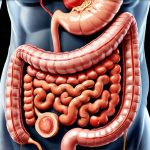Our gut microbiome – the vast community of trillions of microorganisms residing in our digestive tract – plays an unexpectedly large role in overall health. For years, it was largely overlooked, but recent research has unveiled its profound influence on everything from immunity and mental wellbeing to nutrient absorption and chronic disease risk. As we age, numerous physiological changes occur that can significantly impact this delicate ecosystem. These alterations aren’t simply a natural part of aging; they represent shifts that, if unaddressed, may contribute to diminished quality of life and increased susceptibility to illness. Understanding how gut health evolves with age is therefore crucial for proactive health management.
The composition and function of the gut microbiome are dynamic throughout life, influenced by factors like diet, medication use (especially antibiotics), stress levels, and environment. During youth, a diverse and resilient microbiome generally supports optimal health. However, as we move into older adulthood, this diversity tends to decline. This reduction in microbial richness isn’t inevitable for everyone, but it’s a common trend linked to age-related changes in the digestive system, immune function, and lifestyle. Recognizing these changes and taking steps to support gut health is increasingly important for maintaining vitality as we grow older.
Age-Related Changes Impacting Gut Health
The aging process introduces several physiological shifts that directly affect the gut microbiome. One key change is a decline in gastric acid production. This reduced acidity can impair the breakdown of food, hindering nutrient absorption and allowing certain harmful bacteria to flourish while suppressing beneficial ones. Simultaneously, motility – the movement of food through the digestive tract – often slows down with age. This prolonged transit time provides more opportunity for bacterial overgrowth, potentially leading to bloating, constipation, and altered microbial communities. Furthermore, the immune system undergoes a process called “immunosenescence” – an age-related decline in its effectiveness. A weaker immune response means less ability to regulate the gut microbiome effectively, making it harder to maintain balance and ward off harmful pathogens.
These changes aren’t isolated events; they’re interconnected. For example, reduced gastric acid can contribute to small intestinal bacterial overgrowth (SIBO), which further disrupts digestion and nutrient absorption. The slowing of motility combined with immunosenescence creates a scenario where dysbiosis – an imbalance in the gut microbiome – is more likely to develop and persist. This isn’t simply about feeling uncomfortable; chronic dysbiosis has been linked to increased inflammation throughout the body, potentially exacerbating age-related conditions like arthritis, cardiovascular disease, and neurodegenerative disorders. Understanding how gut healing might help reverse some of these issues is important for overall health.
Dietary habits often change with age as well. Reduced food intake, decreased variety in diet, and a reliance on processed foods can all contribute to a less diverse and healthy gut microbiome. Social isolation, common among older adults, may also lead to poorer dietary choices and reduced physical activity – both of which impact gut health negatively. The cumulative effect of these factors paints a picture of why gut health frequently deteriorates with age, but it also highlights opportunities for intervention. Many are unaware of what to watch for when choosing foods, even those marketed as healthy.
Factors Accelerating Gut Health Decline
Beyond the inherent physiological changes associated with aging, several external factors can accelerate the decline of gut health. Perhaps the most significant is antibiotic use. While antibiotics are essential for treating bacterial infections, they indiscriminately kill both harmful and beneficial bacteria in the gut. Frequent or prolonged antibiotic courses can severely disrupt the microbiome’s delicate balance, leading to long-term changes in its composition and function. Even seemingly minor antibiotic treatments can have lasting effects on microbial diversity.
- Consider the impact of repeated illnesses that often require antibiotics during older adulthood.
- Evaluate medication lists for potential gut-disrupting drugs beyond antibiotics (e.g., proton pump inhibitors).
- Discuss alternative strategies with healthcare providers to minimize antibiotic use when appropriate.
Chronic stress is another major culprit. Stress hormones like cortisol can alter gut motility, increase intestinal permeability (“leaky gut”), and negatively impact the composition of the microbiome. This creates a vicious cycle: gut dysbiosis can itself contribute to increased stress levels, further exacerbating the problem. Furthermore, inadequate fiber intake—a common issue among older adults due to changes in appetite or dental issues—deprives beneficial bacteria of their primary food source, leading to reduced diversity and function. A lack of physical activity also contributes; exercise has been shown to promote gut microbial diversity and improve intestinal motility. It’s important to address potential vitamin deficiencies as they can worsen these conditions.
The Gut-Brain Connection & Aging
The bidirectional communication between the gut and the brain – known as the gut-brain axis – becomes increasingly important with age. As gut health declines, so too can cognitive function. Changes in the microbiome can influence neurotransmitter production (like serotonin and dopamine), impacting mood, memory, and overall mental wellbeing. Inflammation originating in the gut can also travel to the brain, contributing to neuroinflammation and potentially accelerating cognitive decline.
Recent research suggests that a healthy gut microbiome may play a protective role against age-related neurological disorders like Alzheimer’s disease and Parkinson’s disease. Specific microbial metabolites – compounds produced by gut bacteria during digestion – have been shown to influence brain health directly. For instance, short-chain fatty acids (SCFAs), produced when fiber is fermented in the colon, can cross the blood-brain barrier and exert neuroprotective effects.
Maintaining a diverse gut microbiome through dietary interventions and lifestyle modifications may therefore be a crucial strategy for preserving cognitive function as we age. This isn’t about preventing inevitable decline; it’s about optimizing brain health and potentially delaying or mitigating the symptoms of age-related neurological conditions. Gut sensitivities can also play a role in cognitive function, highlighting the importance of addressing gut health.
Supporting Gut Health in Later Life: Practical Steps
While gut health often declines with age, it’s not a passive process. Proactive steps can be taken to support microbial balance and promote digestive wellbeing. A cornerstone of any gut health strategy is diet. Increasing fiber intake through consumption of fruits, vegetables, whole grains, and legumes provides nourishment for beneficial bacteria. Fermented foods like yogurt (with live cultures), kefir, sauerkraut, and kimchi introduce probiotics – live microorganisms that can help diversify the gut microbiome. However, it’s important to note that probiotic supplements aren’t a one-size-fits-all solution; choosing the right strain is crucial, and individual responses vary.
Beyond diet, managing stress levels is essential. Practices like mindfulness meditation, yoga, or simply spending time in nature can help reduce cortisol levels and promote gut health. Regular physical activity – even moderate exercise – improves intestinal motility and microbial diversity. Finally, minimizing unnecessary antibiotic use and working with healthcare providers to explore alternative treatment options when possible is critical for preserving the microbiome’s integrity.
- Focus on a whole foods diet rich in fiber and fermented foods.
- Practice stress-reducing techniques regularly.
- Engage in regular physical activity tailored to your abilities.
- Discuss medication lists with your doctor to identify potential gut disruptors.
It’s important to remember that gut health is a complex topic, and individual needs vary. Consulting with a healthcare professional or registered dietitian can provide personalized guidance on developing a gut health strategy tailored to specific circumstances and health conditions. How gut flora shifts is also important to understand when making dietary changes. Prioritizing gut health isn’t simply about addressing digestive symptoms; it’s about investing in overall wellbeing and optimizing quality of life as we age. Can caffeine worsen gut inflammation is also a factor to consider when making lifestyle changes. Finally, cold weather trigger gut sensitivity can affect your overall health and wellness.


















